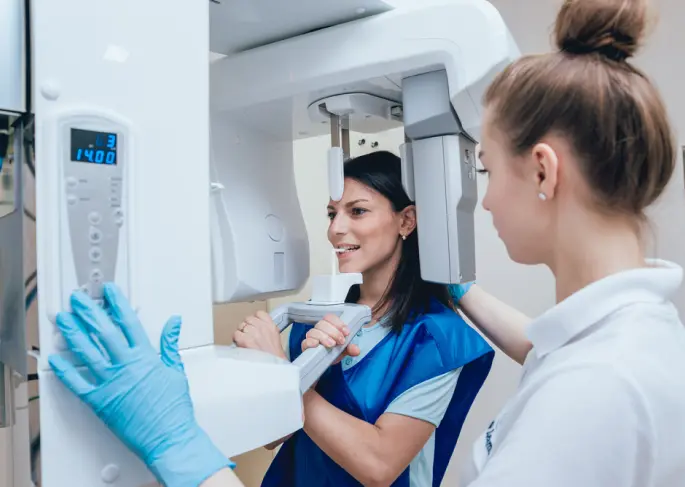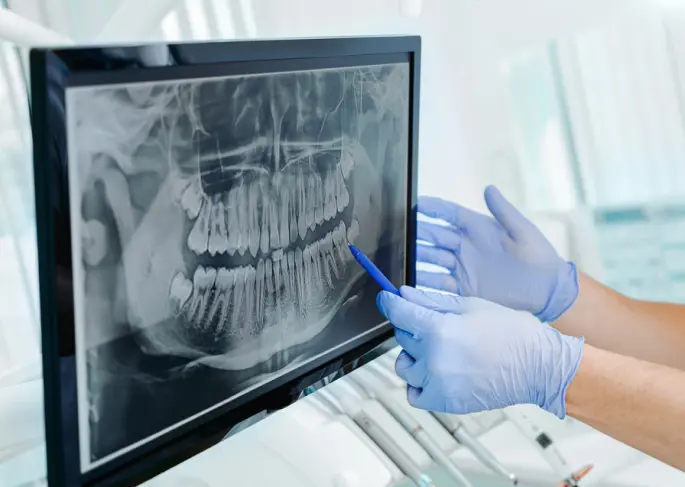ONESMILE
Dental radiology
Smiling for selfies is great, but dental X-rays are key! They give our expert radiologists a clear view of your teeth and jaw, helping us diagnose and prevent problems.

Don’t Wait Until it Hurts When an X-Ray is All You Need
When Do You Need Dental Radiology ?
- Persistent tooth pain or sensitivity.
- Swelling or infection in the gums.
- Unexplained changes in tooth alignment or bite.
- Visible damage or decay on teeth.
What Are Dental Radiologies for ?
- Diagnosing tooth decay and cavities.
- Assessing the health of tooth roots and surrounding bone.
- Detecting oral infections or abnormalities.
- Planning and monitoring orthodontic treatments.


We Ensure that You Stay Safe from Radiation
Radiation is no joke, therefore at OneSmile, we take your and our safety to be of topmost regard. We meticulously follow safety procedures:
- We use focused X-ray beams to minimize radiation scatter and exposure to surrounding tissues.
- We carefully time X-ray exposures to limit your overall radiation dose.
- Our state-of-the-art machines employ advanced technology to reduce radiation levels while maintaining image quality.
Get in touch to book your
first appointment
Contact us today and our friendly team will be happy to assist you.
Our Dental Services
We enjoy debunking myths just as much as we value maintaining oral hygiene by removing dental plaque. Check out some of our services!
Frequently Asked Questions!
Yes, dental radiology is safe in the long term when performed correctly with appropriate precautions. The benefits of accurate diagnosis and treatment far outweigh the minimal risks associated with radiation exposure from dental X-rays.
Precautions include using lead aprons to shield the body, minimizing exposure time, employing modern equipment for reduced radiation, and ensuring proper training for staff to maintain safety protocols and minimize radiation exposure.
Pregnant women should avoid unnecessary dental X-rays, especially during the first trimester. Patients with low risk or no symptoms of dental issues may also delay X-rays. Dentists assess risks versus benefits to determine the necessity for radiological exams.
The duration of a dental X-ray varies depending on the type of X-ray being taken and the specific procedure. Generally, intraoral X-rays can take a few minutes per image, while panoramic X-rays may take around 10 to 20 seconds.